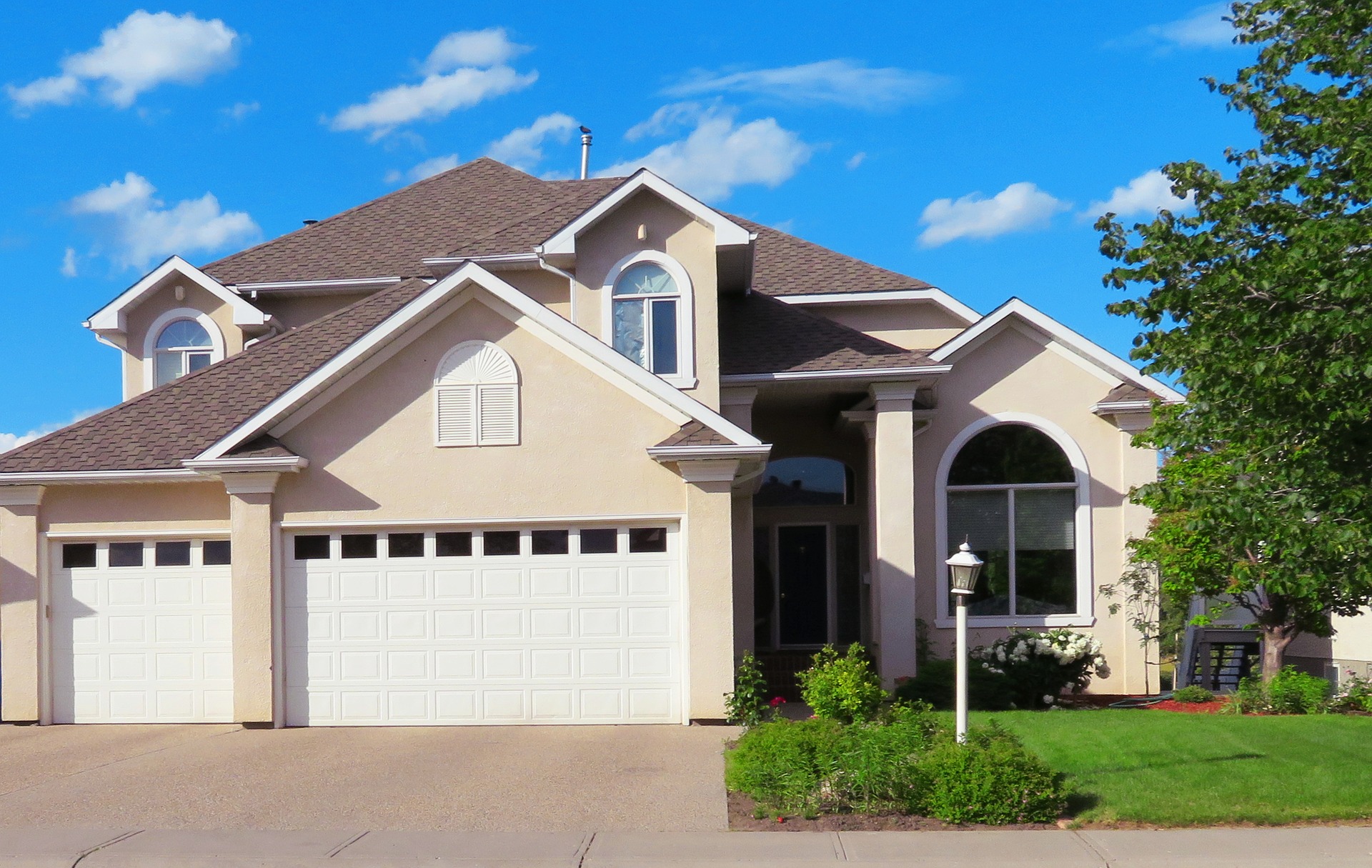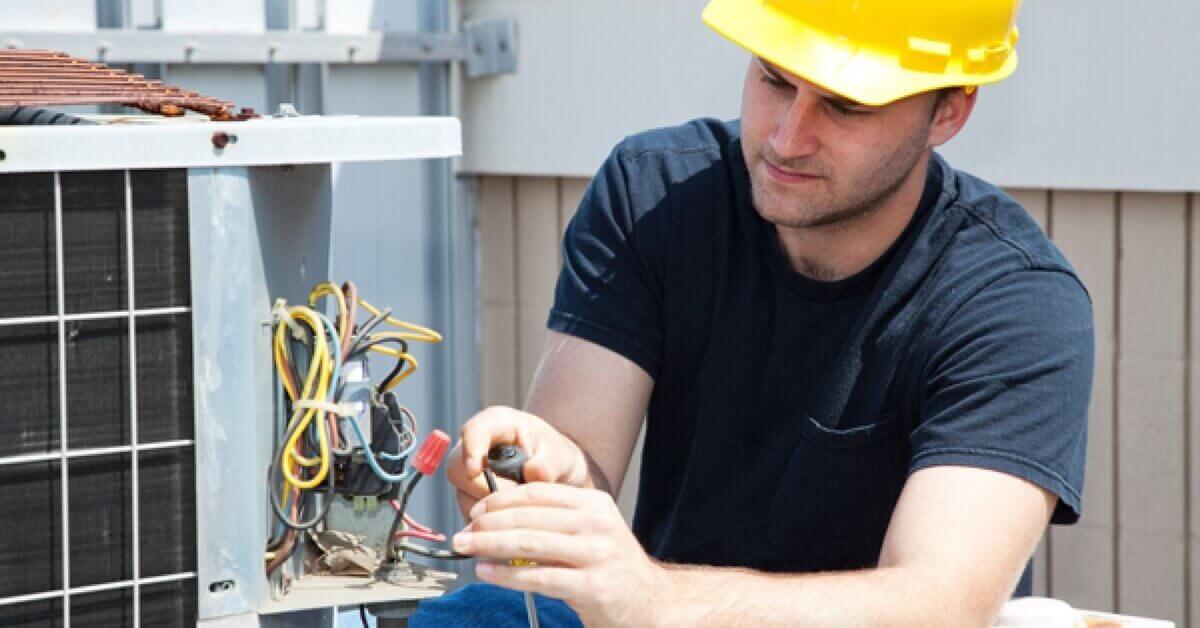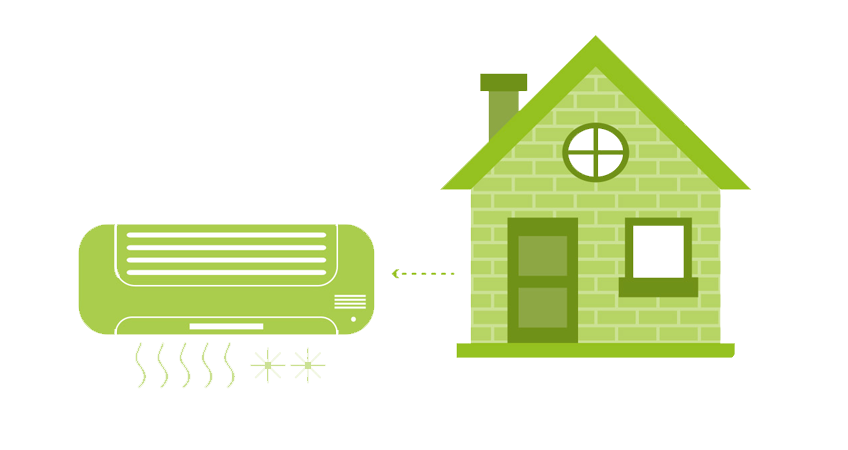We all know how our homes can become unpleasantly hot and humid, especially during the summer. This makes it necessary to install air conditioning systems to increase the comfort in our homes or offices. Air conditioning can help you maintain a comfortable environment by reducing excess heat and humidity. It can improve the quality of air in your house, reduce the risk of allergies and asthma, as well as prevent your electrical appliances from overheating.
However, air conditioning consumes a lot of power, thereby increasing your annual energy bill and a disadvantage to the environment. According to a recent report by International Energy Agency (IAE), air conditions consumes more than 10% of electricity produced globally, with an average air con using about 16% of the total electricity you use at home. Fortunately, with the help of modern home cooling experts, you can come up with several ways of lowering your energy bills and at the same time maintain a cool and healthy environment in your house.
Below we have listed 20 effective ways to reduce energy consumption in your home when air conditioning is mandatory. First, we need to analyse your air con energy costs and the various factors that affect your cooling energy usage.
How much does it cost you to run an air con in your home?
The cost of air con has been one of the major concerns for most homeowners. Depending on your region, the type of air con installed and the size of your home, air conditioning can increase your energy bill by 10 to 30%. In regions that experience hot and humid weather, it can cost you somewhere between £30 to £150 every month depending on the type and size of the cooling appliance.
1. £15 to £20 – For a small AC rated 500 Watts.
2. £30 to £40 – Medium AC rated 900Watts.
3. £50 to £70 – Large AC rated 1400Watts.
4. £100 to £150 – Central Air Con rated 3500 Watts.
The above estimates have been calculated at an average cost of £0.15 per kWh with the air con running for flat 8 hours per day. Though the cost may be lower in some regions and for your air conditioning system, reducing your cooling energy costs can make a significant difference in your pocket and to the environment. Fortunately, a shift to modern high-efficiency air con solutions and other energy saving practices can reduce your air conditioning power usage by nearly 50%.
Factors that affect the efficiency of your air con conditioning
The efficiency of your air conditioning is simply a measure of energy loss when converting energy to cooling, and it depends on several things including:
• Duration of use (how many hours per day and for how many days in a month).
• The efficiency of the air con system model.
• Type of thermostat installed in your home.
• The installation methods.
Simple Ways to Save Energy While Keeping your Home
You can cut down your air condition energy bill in various ways ranging from simple home practices, altering your home design, to regular air con maintenance.
A. Energy Saving Practices

1. Avoid using some of the home appliances when it is too hot outside
Most of the appliances in our homes produce a lot of heat, which increases the room temperatures, overworking the air conditioning system. You can reduce the amount of heat by using machines such as oven, dryer, laundry machine and dishwasher in the evening when it is a bit cooler outside. Other appliances that can add heat in your home are computers, the TV and lighting bulbs among others, so shutting them off during the day will reduce your cooling bill.
2. Minimize your cooking
Cooking is another factor that can increase heat inside your house. This will only increase the air conditioning workload resulting to higher energy use. You can minimize cooking inside the house during the hot season by cooking outside of the house whenever possible. Additionally, you may change your diet to food that can cook in a few minutes to avoid too much cooking.
3. Setting the thermostat as high as you can tolerate
The smaller the difference between the interior and exterior temperatures, the less the cooling required. Thus, raising the thermostat settings to the highest comfortable temperature can reduce the workload for the air con, minimizing power usage. In fact, a recent European Commission Survey revealed that you can save as much as 2% of your cooling cost for every 10F you raise on the thermostat. As a rule of thumb, you should set the thermostat to maintain not more than 8 degrees difference between the room and the outdoor temperature. We recommend setting the thermostat between 74 and 780F for optimal performance.
4. Using your air con together with the fan
A ceiling fan can perfectly complement the performance of the cooling system and minimize your energy expenses. While the air con is good at cooling the air around it, the fan circulates the cool air to other parts of the room thereby increasing the energy efficiency of the cooling system. Moreover, you can just rely on the fan to drive away the hot air on cooler days or evenings. The logic here is that fan uses less energy than the air con.
5. Shut the sun off
By all means, block sunrays from getting into any room to keep off the hot air. This will minimize the amount of work for the cooling unit. You can keep the sun out in several ways including:
• Closing sun-facing windows and doors.
• Drawing and closing the curtains, blinds, curtains or shutters.
• Using light-coloured backings for curtains to deflect the sun rays.
• Use tints on the windows to block the sun.
6. Turn off the air conditioner at night or when you are away
You can as well save your home cooling energy by switch it off when there is no one at home. Moreover, the evening weather is generally cooler meaning you can turn off the air con off during the night and save your air con energy.
For Air Conditioning Repair
Call Us: 01277 841 500
B. Home Design and Improvement Energy-Saving Tips
You can control your home cooling energy use through energy effect home designs and upgrades. Some of the design ideas include:
7. Door and window design
Energy efficiency door and window designs may involve weatherproofing installation to prevent cool air from escaping through gaps in the doors and windows. Additionally, you should position the doors and windows in such a way that they allow free flow of air into and out if the house. This allows you to utilize the evening breeze to keep your home cool, giving your air con a break.
8. Consider room insulation
Insulate your wall or attic and seal any cracks on the walls to prevent hot air from getting into the house. This will also keep the cool air within the room increasing the cooling performance of the unit. You may use either the spray foam or the fibre-glass batting insulation.
9. Landscaping

Work with a professional landscaper to plant trees, shrubs and vines in your compound. The vegetation will not only provide aesthetic value, but also create shade that guards your home from sun heat.
10. Consider natural lighting
A good home design should allow more natural light into the rooms during the day to avoid lighting the bulbs which produces a lot of heat. Natural lighting can be achieved through strategic window and door positioning, as well as painting the walls in bright colours.
11. Painting the exterior walls in bright colour
Using bright colours on your exterior wall can reflect some of the heat keeping your home cooler. This will in turn reduce the amount of energy required to cool the house.
C. Air Conditioning System Installation and Maintenance Tips
Another effective way to reduce your home cooling bills is by installing the best air con correctly and maintaining the unit at optimal working condition. Some of the ideas include:
12. Installing the right air conditioning system

If you are purchasing an air conditioning system, it is important to select the right size that is sufficient for your home needs. Having a large cooling unit doesn’t translate to faster cooling, but will increase your energy bill.
13. Check the Energy Efficiency
Confirm the energy efficiency of the system by checking the manufacturer ratings. The best thing can be purchase a solution that has been approved by local energy regulators.
14. Work with qualified and experience home cooling experts
A qualified energy engineer will ensure that you have purchased the right appliance and install it correctly to avoid energy loss. Some engineers will go an extra mile to offer free energy saving tips to the customer.
15. Repairing and servicing your air con
Your air con system should be serviced at least one per year and repaired as soon as possible in case of a breakdown. The best time to schedule a routine service is just a few weeks before the hot season to ensure that it is up and running efficiently. Flaws and faults in the air con unit can lead to energy inefficiency.
Also Check:
Air Conditioning Repair Tips
16. Cleaning the filters
The air con filters trap dirt, dust and debris to improve the quality of air as well as protect your air con. Cleaning the filters and replacing them regularly can save your energy.
17. Parts replacement
Inspect your air conditioning system regularly, and replace any broken or malfunctioning part that could increase power usage.
18. Upgrading your air con unit
The efficiency of your home air con reduces with age. It is therefore advisable to replace your old system with a newer more efficient model to enhance energy efficiency.
19. Installing smart programmable thermostats
Programmable thermostats allow you to manage you home cooling requirements more effectively. They enable automatic scheduling or shutting down when necessary.
20. Consider other cooling alternatives
In some areas you can keep your home cool without central air conditioning. You can use portable air conditioning units or fans to keep your home cool without digging deep into your pocket to foot the energy bill.
Conclusion
Air conditioning is necessary to keep your home cool and comfortable for your living. However, it needs a lot of power to run which may stretch your finances to the limits. Fortunately, you can work around the above tips to keep your air conditioning costs at a manageable level.

